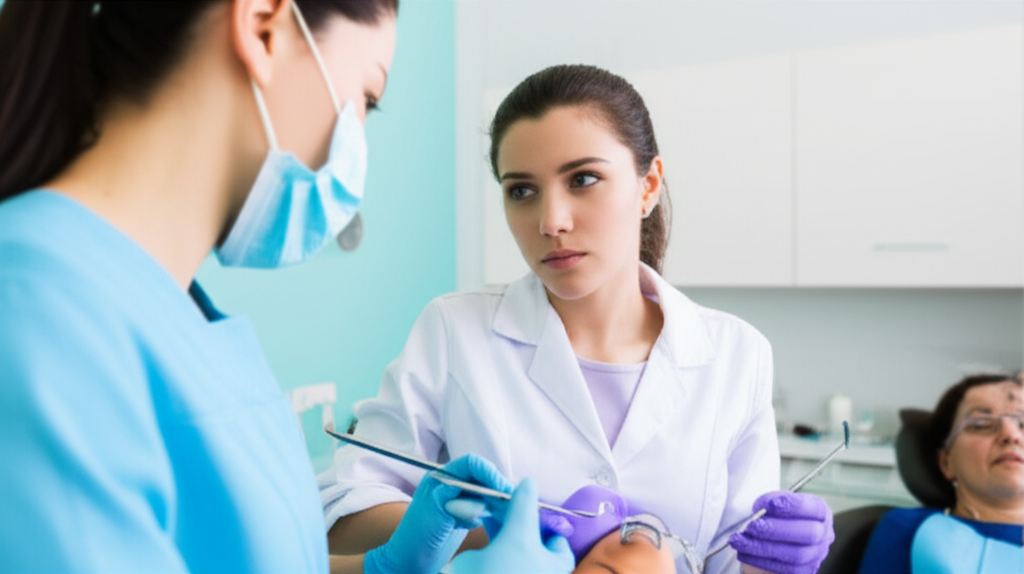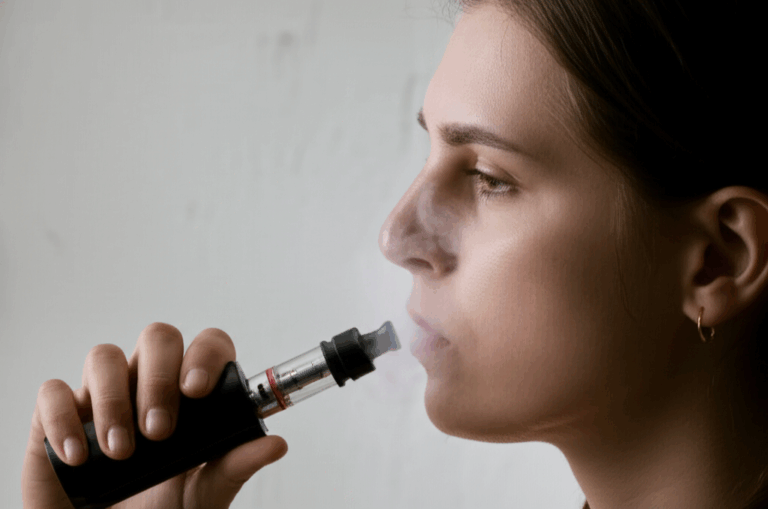
From RDH to DDS: Your Complete Guide on How a Dental Hygienist Can Become a Dentist
Have you ever looked across the dental chair and thought, “Could I do what my dentist does? Could my years as a dental hygienist help me become a dentist?” Good news—you’re not the only one who wonders. Many dental hygienists, called RDHs, get to this point, wanting to try new things, take on more responsibility, and do more for patients. If you’re curious or even nervous about how to go from RDH to DDS or DMD, this simple guide is made for you.
The quick answer: Yes—a dental hygienist can become a dentist. But it’s a tough but rewarding path, with both big chances and lots of work. Let’s look at what’s needed, why you might want to do it, and how you can take the next step with confidence and realistic ideas.
In This Article
- Is It Possible for a Dental Hygienist to Become a Dentist?
- Why Make the Transition: Benefits of Becoming a Dentist
- The Step-by-Step Path: From RDH to DDS/DMD
- Unique Advantages for Dental Hygienists Applying to Dental School
- Hurdles and Realities: Challenges RDHs Face on This Path
- Is It Worth the Investment? Looking at the ROI
- Financial Planning for the Dental School Journey
- Charting Your Course: The Empowering Takeaway
Is It Possible for a Dental Hygienist to Become a Dentist?
Let’s start by answering your main question right away: Can a dental hygienist become a dentist?
Yes! In fact, being a Registered Dental Hygienist gives you a solid base for dental school and for working as a dentist in the future. There is no easy way, though—you still need to go back to study science, pass the Dental Admission Test (DAT), spend four years in dental school, and get licensed. But your hands-on skills, maturity, and time spent in a real dental office—all of these make you a strong candidate.
Many dental hygienists have made this change and brought their energy, knowledge, and care for patients with them. It’s a big challenge, but it’s also one filled with chances for those who want to grow, make more money, and take charge of their career.
Why do people keep asking this? As an RDH, you see dentistry up close every day. You know that while hygienists and dentists both work with teeth, what they are allowed to do—and the rewards they get—are very different. If you want to be more involved in patient care or even run your own office, going from RDH to DDS might be your next step.
Why Make the Transition: Benefits of Becoming a Dentist
Why would someone leave a steady RDH job to go back to school for years and pay a lot in student loans? Actually, there are some good reasons.
More Things You Can Do
As a dental hygienist, you focus on preventing problems and cleaning teeth, but your job doesn’t let you make diagnoses, do fillings, or plan treatments. Dentists can find problems, treat them (including fillings, root canals, crowns, even small surgery), and follow patients throughout their whole dental journey.
Higher Pay
Money might not be the most important thing, but it does matter. The Bureau of Labor Statistics says dental hygienists make about $81,000 per year, while general dentists make between $190,000 and $220,000 or even more. That’s a big difference that can make the cost and time of dental school pay off.
More Control and Growth
If you’ve ever thought about running your own practice or leading a dental team, dentists have the chance to do this. You get to decide more, not just follow what others say.
Closer Relationships With Patients
Hygienists get to know patients through a lot of routine care, but as a dentist, you help people with bigger issues, and build deeper trust and connection.
Your Experience Matters
Dental schools really like applicants who already work in the field. Your time as a hygienist gives you real skills, shows your work ethic, and proves your commitment to oral health.
The Step-by-Step Path: From RDH to DDS/DMD
Dreaming is good, but you also need a plan. Here’s an easy-to-follow map of how to go from dental hygienist to dentist:
Step 1: Finish Needed Classes and Get a Bachelor’s Degree
Most dental hygienists have an associate or bachelor’s degree. If you have an associate’s, you need to get a bachelor’s degree and take required science classes like:
- Biology
- General Chemistry
- Organic Chemistry
- Physics
- Biochemistry
- Microbiology
- Anatomy and Physiology
Dental schools care about high science grades. Many want at least a 3.5 GPA.
Tip: If your dental hygiene classes didn’t cover these, think about joining a pre-dental or extra science program.
Step 2: Take the Dental Admission Test (DAT)
The DAT is your entrance ticket to dental school. This test covers science, reading, math, and 3D reasoning (helpful for dental work). Most accepted students get at least a 20 out of 30.
Be warned—it’s hard! Give yourself several months to get ready, especially if you’ve been out of school.
Step 3: Get More Clinical and Shadowing Experience
Working as a hygienist helps, but dental schools still want to see if you have spent time watching dentists work, and ideally shadowed both general dentists and specialists.
- Try volunteering at free dental clinics.
- Shadow different dentists, not just your own boss.
- Share these stories in your personal statement—they make you stand out!
Step 4: Apply to Dental School
Most people use AADSAS to apply. You’ll need:
- Official transcripts from all colleges you went to
- A personal statement (explain your RDH background and why you want to be a dentist)
- Letters of recommendation—get these from dentists you know well, and science professors
Watch for deadlines. Interviews can start as early as fall for classes that start next year.
Step 5: Finish Dental School (DDS/DMD)
Dental school usually takes four years, with:
DDS (Doctor of Dental Surgery) and DMD (Doctor of Medicine in Dentistry) mean the same thing—just a different title.
Step 6: Get Your License
You’ll need to pass the National Board Dental Exam (now called INBDE) and your state’s practical exam. Every state is a little different, so look up your state board’s requirements.
You might also:
- Do a dental residency (mandatory for some specialties, optional for general dentistry)
- Take extra exams for certain places or specialties
Unique Advantages for Dental Hygienists Applying to Dental School
If applying to dental school scares you, relax—hygienists have a few special strengths.
You Already Have Patient Skills
You know the dental chair, tools, and safety steps well. You’ve helped real people, not just passed tests.
You’re Mature and Hardworking
Dental schools value “non-traditional” students like you. Years on the job prove you’re dedicated and work well in a team.
You’ve Shown Your Passion
Your resume shows you really care about dentistry, not just picking it as a random career. That matters to admission teams.
Strong Letters of Recommendation
Dentists and supervisors see your talents every day—they can write great recommendations that are more detailed than what a college teacher can do.
You Know What The Job Is Really Like
You’ve already seen both the good and bad sides of dental work. You know what you’re getting into, while regular college students might be surprised.
Hurdles and Realities: Challenges RDHs Face on This Path
This isn’t easy. Look honestly at the hard parts before you jump in:
Long Time Commitment
Going from RDH to dentist can take 6-8 years after high school. That includes catching up on needed classes, finishing your bachelor’s, plus four years of dental school.
Big Cost
Dental school is expensive. Most schools charge between $250,000 and $450,000, with private schools costing more. Add living costs, books, and exam fees to that. Want tips on paying for school and career payback? See this dental care guide.
Hard Classes
The science, medical, and practical learning is much harder and more detailed than in hygiene school. Get ready for long hours and a heavy workload.
Balancing Life
It’s tough to juggle family, work, and study, especially if you’re going back to school as an older or nontraditional student or you have kids.
Hard to Get In
Dental school is very competitive—usually only 5-10% get in. You’ll need high grades (especially in recent science classes), a strong DAT, and an outstanding application.
Is It Worth the Investment? Looking at the ROI
Now the big question: Is all this time, money, and effort worth it?
Why It Might Be
- Pay: Dentists often make at least twice what RDHs make (about $190,000+ a year), so the investment can pay off over time.
- Happiness at Work: Dentists often like their jobs, have control over what they do, and can shape their work environment.
- Making a Bigger Difference: You help fix smiles, spot diseases, and make a bigger impact on people’s lives.
Why It Might Not Be
- Debt: If paying off loans worries you, do the math first. Will you really make enough to pay off what you borrow?
- Don’t Like School: If you hate school, remember dental programs are really tough.
- Prefer Patient Care: If you just love direct care and don’t want the business side, you may feel happier as an expert RDH.
Bottom line: Only you can decide what you really want—money, joy, work-life balance, or all of the above. Some RDHs try dental school and decide they’re happiest staying as a hygienist.
And that’s okay!
Financial Planning for the Dental School Journey
Worried about the money? Others have made it work—here’s what they did.
Scholarships and Grants
- The American Dental Education Association (ADEA) and some dental schools offer money help for people switching careers or nontraditional students.
- Some state and local groups give scholarships to those with a hygiene background.
Student Loans
- Most dental students use federal Stafford loans, PLUS loans, and sometimes private loans.
- Before jumping in, look up income-based repayment and programs that forgive loans for healthcare workers.
Budgeting for School
- Save as much as you can before you start.
- Try part-time work during your pre-dental classes (you won’t have time for a job during dental school).
- Keep spending on housing and food as low as you can.
Repaying Loans After School
- Use payment plans that keep repayment to a part of your income.
- Some dentists get public health jobs with loan repayment help.
- Running your own practice can mean more money, but also comes with extra risks and costs.
If you need more info, go to your dental school’s financial aid office or look at guides from the ADA.
Internal Resources That Might Help
Want to learn more about oral health as you plan your career? Check out these helpful guides:
- Teeth Health: Basics for keeping a healthy mouth for life.
- Dental Diseases: Common problems, how to stop them, and what dental pros should know.
- Teeth Information: Facts about how teeth work, names for teeth parts, and basic dental treatments—good to review before taking the DAT or having a dental school interview.
Charting Your Course: The Empowering Takeaway
Let’s sum up. If you’re a dental hygienist thinking about becoming a dentist, remember:
You Have Great Experience.
- Your background as a RDH gives you a clear advantage—mention it when applying and at school.
Follow the Steps.
- Finish all needed science classes and a bachelor’s degree.
- Study for and do well on the DAT.
- Shadow dentists, volunteer, and make a great application.
- Complete four years in dental school, pass the needed tests, and get licensed.
Be Smart With Money.
- Look closely at your money situation, find aid or loans, and make a budget.
Be Honest With Yourself.
- This isn’t for everyone, but it can change your life if it fits you.
How to Start:
- Meet with a pre-dental advisor to map out what you need.
- Shadow a dentist outside your usual office.
- Make a checklist to track your steps—it helps you see your progress.
No matter whether you become a dentist or decide to focus on being the best hygienist you can be, knowing your options makes you stronger. Stay interested, keep learning, and use good information as you plan your next move in dental care.
Interested in dental technology, materials, or lab skills? See how an advanced digital dental lab can help both hygienists and dentists get better results—useful for your new skills or next steps.
Remember, every big change starts with one clear, simple step. Ready to take yours?
Summary Checklist: RDH to DDS at a Glance
- ✔ Make sure you’ve finished all needed science classes and have a bachelor’s degree
- ✔ Study for and get a good DAT score
- ✔ Shadow dentists and volunteer if you can
- ✔ Put together a strong dental school application
- ✔ Make a budget for school and living costs
- ✔ Tackle dental school and licensing with energy and commitment
What to do next: Reach out to a dental school or advisor in your area. Your dream could be closer than you think!








